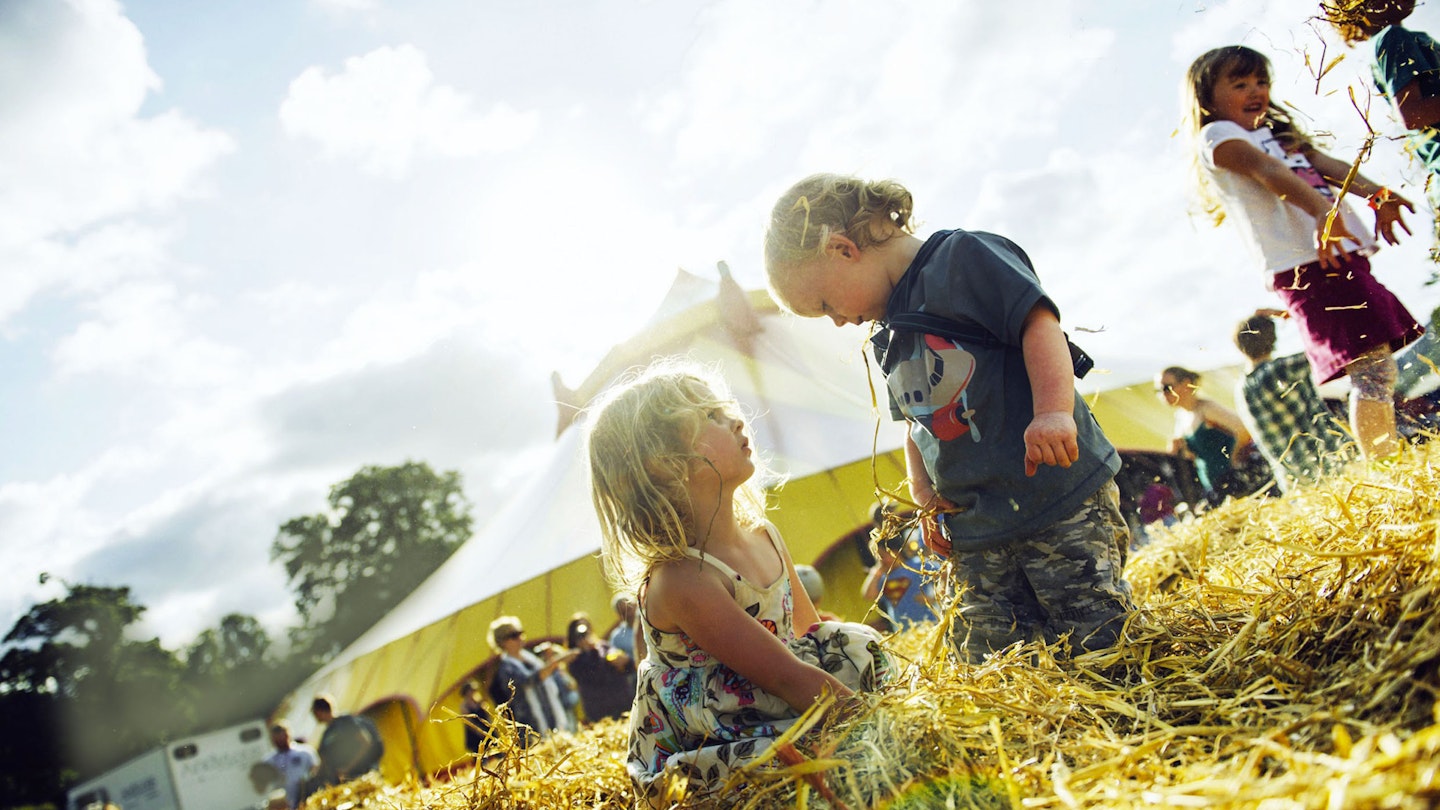Whether to take your baby to a music festival is an ongoing debate that provokes mixed views.
Exposure to music can be fantastic for your growing baby/toddler and while some types of music environments are less favourable for children than others, each festival is very different.
Some festivals are geared towards an adult audience and some are deliberately more family-friendly. It’s a question of doing your research first and then choosing an event that will suit you and your family.
Being around the right kind of music can offer a range of benefits to your toddler. Most of us instinctively understand that our children react positively to songs, but what we may not fully appreciate is how those endless repetitions of “Twinkle, Twinkle, Little Star” are a fundamental part of our babies’ mental, physical and social development, helping our children to develop their speech and improve their co-ordination.
So visiting festivals that offer music activities especially designed for children can be a fantastic experience as this kind of music is better suited to their learning and development; you will probably notice the very deliberate use of repetitive music and lyrics found in most nursery rhymes.
What is so important about being around music?
When a baby is born, the neurons in the brain are largely unconnected and exposure to different stimuli helps develop their neural networks. Research has also shown that music can act as a stimulus to “wire up” the brain more rapidly and speed up a child’s mental development. In fact, it is believed that exposing young babies to music can increase the speed of neural connections even before they are born.
When visiting a festival with a baby you need to be mindful of the volume of the music, if it is too loud or you are stood close to audio equipment this could be unsafe for your child’s ears, but it’s usually down to common sense. Keep away from the main speakers and ensure you aren’t exposed to very loud music for long or prolonged periods of time. Most music festivals take place in the great outdoors, which means plenty of open space and fresh air too – just avoid very crowded areas where possible.
Language development
As babies start to babble, they are picking up the “phonemes” or building blocks of their own language. It may sound like gibberish to start with but through babbling babies will gradually settle on the sounds of their mother tongue, starting with simple utterances such as “mama” and “dada”.
Music festivals and songs can also help children to learn about the world around them. There are lots of number songs, which help toddlers learn to count. And you can also explore concepts such as colours, animals, transport and even telling the time through song. Playing instruments, dancing, clapping, movement and simple action songs, can also help with your child’s motor skills and develop their general co-ordination.
Social and emotional benefits
Music builds and strengthens bonds of trust and communication between adults and children and taking your child to a family friendly music festival can help to encourage their self-expression and confidence.
Put simply, music is fun for both adults and children alike and there is no reason why parents can’t enjoy the festival environment providing they are clued up in advance on the event they are attending.
By Caroline Crabbe, General Manager at Jo Jingles (www.jojingles.com)
